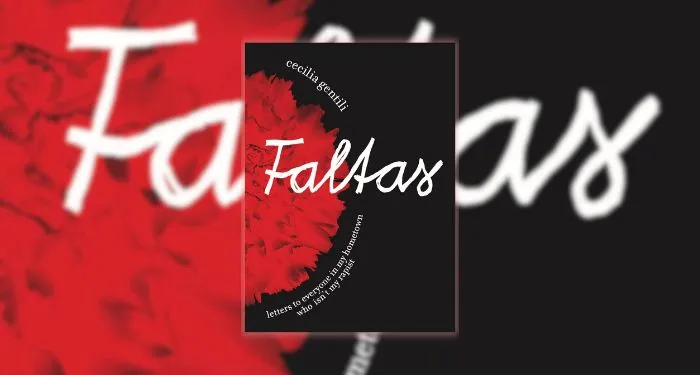
A Memoir of a Beloved Trans Activist, Author, and Artist
I read this incredible memoir about a month before Cecilia Gentili died in February 2024. She was a beloved trans activist, sex worker, author, artist, and community organizer. I had only heard of her peripherally before reading this slim and powerful book. As soon as I finished it, I set out to read every word she’d ever written. Her voice is singular and wonderful: funny, sharp, scathing, and full of love. Her death is devastating—for her loved ones, and for so many trans and queer people who were impacted by the work she did. Reading this book is one small way to honor her life.

Faltas by Cecilia Gentili
CW: rape, child abuse
The subtitle of this memoir-in-letters is “Letters to Everyone in My Hometown Who Isn’t My Rapist” and it perfectly captures Gentili’s unique tone. This is absolutely a heavy book. It’s about rape and sexual abuse and ongoing trauma. It’s also hilarious and juicy, full of campy humor, fun gossip, sly jokes, and excellent fashion advice. It’s the kind of book that’s hard to imagine until you’re reading it: it doesn’t seem possible, and then it is.
The letters are mostly addressed to the women who shaped Gentili’s life in her small hometown in Argentina: her grandmother, her mom, a woman she looked up to like an older sister, the daughter of the man who raped her. She never writes to her rapist directly, but his ghost haunts all of her letters. She writes about the homophobia and transphobia she survived, about all the ways her family and community failed to protect her during the years she was being abused. She writes about how lonely it was. She also writes about how deeply her grandmother loved her, about her life-saving sisterhood with her best friend, a gay man, and about the refuge they found in each other before they had the words to name their identities.
In intimate letters, Gentili reflects with honesty and compassion on her younger self and the people to whom she writes. She writes into complicated relationships instead of trying to simplify them. She refuses to make her life about just one thing: just trauma, or just suffering. Instead, she writes through a series of conflicting emotions—anger, bitterness, despair, pride, delight, queer joy. She rejects the idea that writing about trauma means ignoring joy. She rejects the idea that a trans life can be reduced down to a single story or experience. She writes about it all.
This is a beautiful, heartbreaking, celebratory book about survival and what comes after survival. I think about it all the time, and I am profoundly grateful for the challenging but profoundly hopeful gift of Gentili’s words. I hope more people find their way to it.
15 New Queer Books Out This Week
Bonus content for paid subscribers continues below.